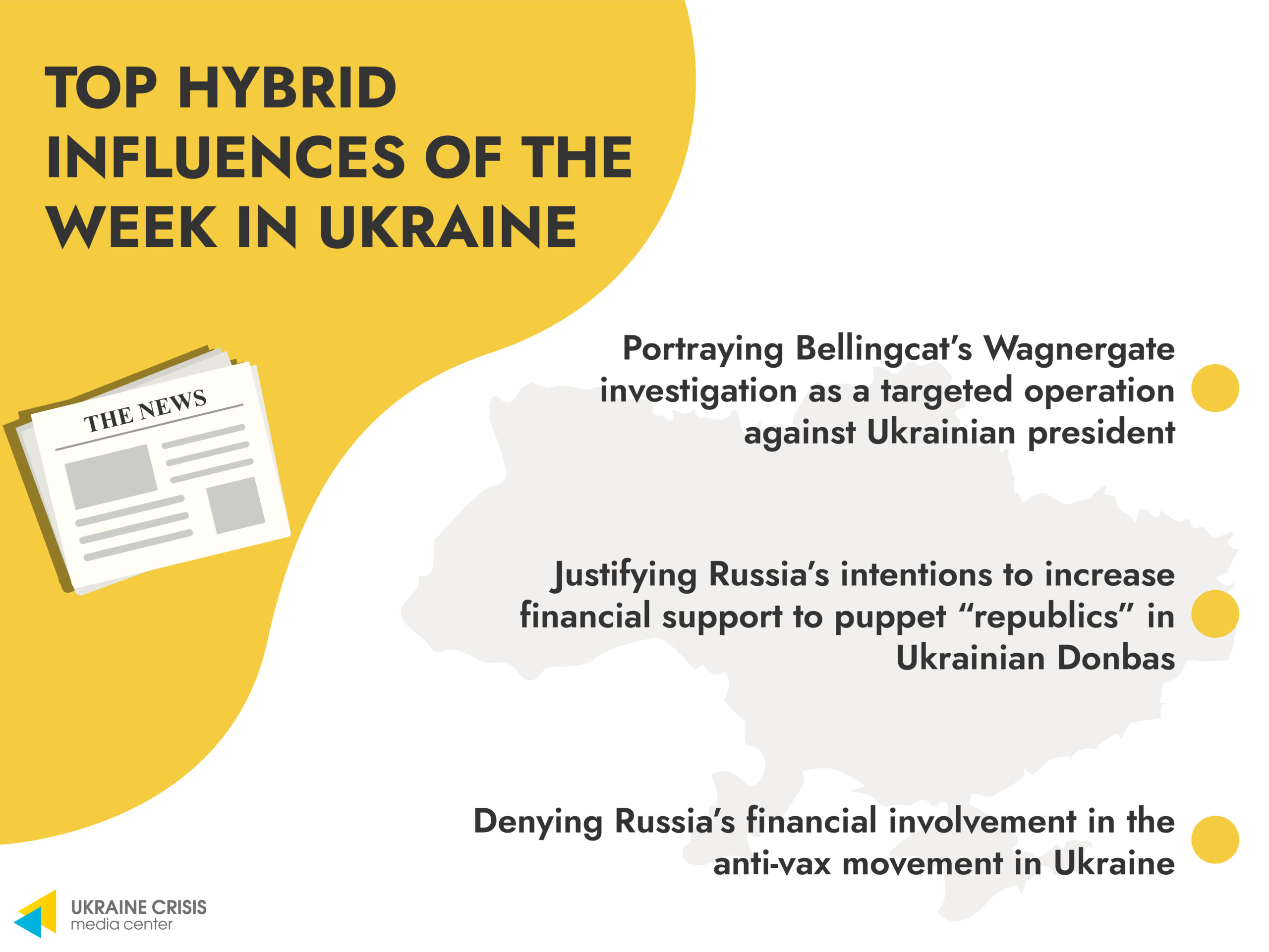On November 17, Bellingcat and The Insider published a long-awaited investigation report on Wagnergate, the sting operation by the Ukrainian intelligence to capture 33 fighters from the Wagner group cut short after the postponement initiated by the President’s Office. The pro-Kremlin forces portrayed the investigation as a direct part of the targeted Western information campaign against the Ukrainian President. This continues the false narrative of the West orchestrating a campaign to discredit Zelensky, by sharing which the Kremlin’s proxies push the external governance narrative and, as a result, undermine Ukraine’s relations with its partners.
This week Russian President Putin signed a decree on “providing humanitarian aid” to the puppet “DPR/LPR” republics, as well as their further economic integration with Russia. Despite this being another step of legitimizing the Russian occupation of Ukrainian territories, the pro-Russian media found ways to justify the new Kremlin’s law and, what is more, blame Ukraine for failing to de-escalate the hostilities. Such coverage normalizes the aggressor’s actions aimed to hinder the re-integration process for Ukraine after the occupied territories return to government control.
The Security Service of Ukraine has served the leader of the Ukrainian anti-vax movement Ostap Stakhiv with the notice of charges for attempting to destabilize the sociopolitical situation in Ukraine. The anti-vax network was allegedly coordinated and financed from Russia. The pro-Kremlin forces launched information attacks to portray Russia’s involvement as false, even though it is not the first time the Russian trail manifests itself: the recent anti-vax protests were organized, among others, by pro-Russian groups. Undermining trust in vaccines and healthcare has been at the forefront of Russia’s disinformation efforts in Ukraine and many other countries ever since the launch of vaccination campaigns.



